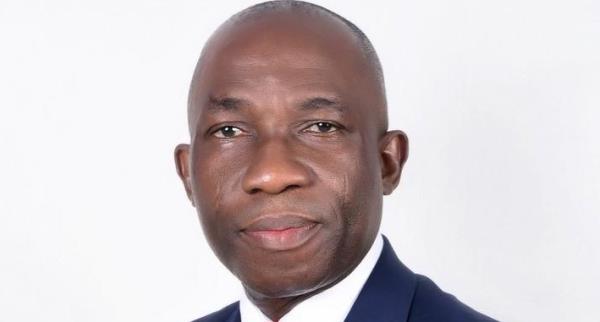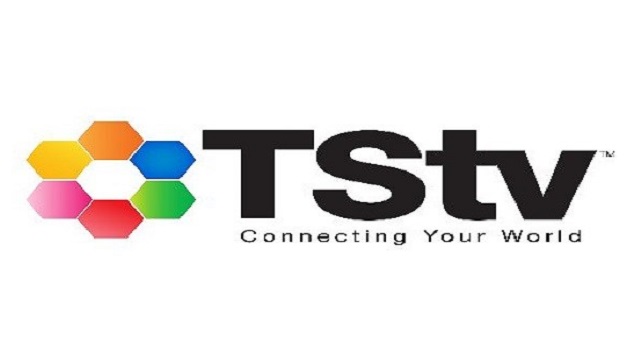Broadcasting
NCC, WIPO Seek Leveraging of ADR as Solution to Protracted Copyright Litigation

Nigerian Copyright Commission (NCC) has urged stakeholders in the entertainment industry to leverage the Alternative Dispute Resolution (ADR) mechanism for speedy resolution of disputes in view of the time consuming, cost intensive and highly technical nature of copyright and intellectual property (IP) litigations.

Mr. John O. Asein, the Director-General of NCC, stated this in his remarks at a webinar on Mediation and Arbitration for Entertainment Disputes, organised by the Commission, in collaboration with the World Intellectual Property Organisation (WIPO) Nigeria Office, recently.
According to him, “Cases in the entertainment industry deal with aspects of law that are peculiar and fairly technical which the regular courts may not always be well equipped to handle.
Beyond the general principles of law, the proper adjudication of these cases would also require a good understanding of industry practices. There is also the usual challenge of crowded dockets which leads to cases being prolonged, hence the need to adopt ADR to achieve win-win outcomes.”
The Director-General indicated that the NCC was poised to put in place an appropriate ADR framework to make it easier for parties to resolve disputes rather than rely on the traditional court system.
He said the Commission would fine-tune relevant policies to complement this and deepen stakeholders’ understanding of ADR as a viable solution to the challenge of delayed resolution of disputes in the entertainment field.
He stressed that the use of the ADR mechanism, with its speedy and cost-effective procedure, would also boost investor confidence in the entertainment sector and ensure that the adjudicatory system does not become an albatross in the industry.
“As we grow all aspects of the industry, we have to also encourage stakeholders to embrace the ADR process either as a mandatory first step or as complementary measures in resolving disputes.
“If well managed, ADR would be a cheaper, more efficient route to resolving disputes so as to engender cordiality and the sustainable management of the fragile business ecosystem we find in the entertainment industry”, he added.
Commenting on the ADR process in the mediation and arbitration of entertainment disputes during the webinar, Mr. Oluwatobiloba Moody, the Head of WIPO Nigeria Office, commended the NCC for its commitment to the recently concluded Memorandum of Understanding (MOU) between the NCC and WIPO on Alternative Dispute Resolution in the area of IP.
He said the huge contribution of the entertainment industry to the Nigerian economy was a pointer to the enormous potentials of the industry. “Getting it right from resolution of disputes can engender sustainable management of growth across the entire value chain to ensure viability of the industry”, he stated.
Speaking further on the relevance of the webinar to the policy direction of the Commission, the Director-General stated that the ADR mechanism would be incorporated into the governance process of Collective Management Organisations (CMOs) as part of the ongoing review of its regulations.
He said the measure would enable parties in CMO disputes to use the ADR mechanism more than ever before.
He assured participants that the Commission’s training arm, the Nigerian Copyright Academy (NCA) has been charged to provide tool kits for young lawyers to help them in handling copyright cases and for them to better appreciate the value of ADR.
In his vote of thanks, the Director of NCA, Mr. Mike Akpan, expressed the Commission’s gratitude to WIPO’s Arbitration and Mediation Centre, the IP Committee of the Nigerian Bar Association (NBA) and the Intellectual Property Lawyers Association of Nigeria (IPLAN) for their collaboration in facilitating the success of the webinar. Other speakers at the webinar included Mr. Leandro Troscano and Mr. Oscar Suarez of the WIPO Arbitration and Mediation Center.
Broadcasting
Nigeria Week Ahead: Inflation, Oil and Naira in focus

By Lukman Otunuga, Senior Market Analyst at FXTM.
A flurry of high-risk events may pump global financial markets with fresh volatility this week.

Top-tier data, including US Inflation, the unofficial start of earnings season, and US Congress “Crypto Week,” among other themes, could spell fresh opportunities.
Amidst this, uncertainty over global trade will add to the mix after President Donald Trump threatened 35% tariffs on the EU and Mexico over the weekend.
Regarding US inflation, this may impact bets around Fed cuts in the second half of this year. Markets are forecasting CPI to rise 2.6% from 2.4% in the prior month, with core CPI rising to 2.9% from 2.8%. Signs of rising prices may shave bets around the Fed cutting interest rates – boosting the dollar as a result.
Closer to home, Nigeria’s June CPI data due July 15 is expected to show signs of cooling inflationary pressures. This could offer some relief to the Central Bank of Nigeria (CBN) which aggressively hiked interest rates throughout 2024. Inflation is expected to have eased to 21.4% year-on-year from 23% in May – marking the 4th consecutive month of decline. However, the slowdown is largely a technical adjustment aided by the recent gains in the Naira amid higher non-oil exports and a weaker dollar.
The CBN is scheduled to meet later this month and will most likely keep rates unchanged at 27.5%.
One key challenge for the country will be how to re-tweak its budget for lower oil prices. Indeed, the budget was based around oil production at 2 million barrels and oil prices of $75. Brent is trading around $70 with the nation producing 1.544m b/d of crude in May according to OPEC. Nigeria is hoping to raise production to 1.9m b/d by the end of 2025. But its impact on the economy may be muted if oversupply and tepid demand keep oil prices subdued. Brent is up 4% this month but still down over 6% since the start of 2025.
Broadcasting
EFCC Re-Arraigns Echefu, TStv CEO for Allegedly Defrauding Ex-Minister of N1Bn, $1.3m

Bright Echefu, chief executive officer, Telecom Satellites Limited (TStv), and three co‑defendants appeared before the Federal High Court in Abuja yesterday on an amended twelve‑count indictment brought by the Economic and Financial Crimes Commission (EFCC). The charges allege money laundering, tax evasion, and investment fraud involving approximately ₦1 billion and $1.3 million.

Bright Echefu, chief executive officer, TStv
In addition to Echefu, the defendants are TStv Executive Director, Felix Igboanuga, Telecom Satellites Limited itself, and Briechberg Investment Ltd.
According to the April 5, 2025, amended charge sheet the EFCC accuses the quartet of defrauding Mr. Tanimu Turaki, Managing Director of Kalsiyam Global and former Minister of Special Duties, alongside BYI General Limited, out of a combined investment of ₦1 billion and $1.3 million. The commission has also included a ₦66 million alleged tax default.
The revised indictment lists:
Count 2: ₦33,909,542.47 in unremitted Company Income Tax
Count 3: ₦13,519,382.00 in unremitted VAT
Count 4: ₦19,488,860.00 in unremitted PAYE
Counts 5–12: Various fraud‑related transactions, including ₦380 million from Kalsiyam Farm, ₦400 million from BYI General Ltd and $1.35 million in loans secured under false pretences.
All defendants pleaded not guilty once again. At the hearing before Justice Mohammed Umar, Echefu’s lead counsel, Senior Advocate Eyitayo Fatogun, informed the court of ongoing settlement discussions with the complainants.
“There are moves to settle this matter and there was a meeting on Saturday between myself and the Nominal Complainant as it is about investment,” Fatogun stated.
“The Defendants have paid some money and I was thinking that the matter be adjourned for report of settlement.”
EFCC counsel A.S. Tomwell confirmed receipt of those payments but emphasized the necessity of entering a plea before considering any adjournment. The court thus ordered the formal reading of the charges and adjourned the trial to October 15, 2025.
Broadcasting
More Woes for MultiChoice as Ghana Orders 30% Price Cut

The government of Ghana has ordered MultiChoice Ghana to reduce DSTV subscription costs by 30%, noting the significant appreciation of local currency and growing dissatisfaction with current rates.

This comes as Nigeria Data Protection Commission (NDPC) has fined MultiChoice Nigeria ₦766,242,500 for breaching the Nigeria Data Protection Act (NDPA).
According to Mr Babatunde Bamigboye, head Legal, Enforcement & Regulations, NDPC, the investigation, which commenced in the second quarter of 2024, was triggered by suspected breach of privacy rights of Multichoice subscribers and illegal cross-border transfer of personal data of Nigerians.
MultiChoice, which operates across Africa, continues to lose revenue and subscribers.
Ghana’s minister of communication, digital technology, and innovation, Samuel Nartey George, made the call last week during a meeting with a DSTV team led by Dr. Keabetswe Modimoeng, group executive for regulatory and corporate affairs.
According to a ministry statement, George said the government’s responsibility is to respond to Ghanaians’ concerns over high DSTV pricing and outdated content offers.
The Minister pointed out that despite a 30% increase in the cedi’s value over the past five months; DSTV prices have not reflected the positive economic trend.
The statement went on to say the minister is therefore calling for a 30% price reduction to match the cedi’s appreciation and to pass on economic benefits to consumers.
According to the statement, while MultiChoice has implemented promotional packages, people prefer a direct price reduction over temporary discounts.
George said feedback from public engagements revealed that many users are dissatisfied with DSTV’s content, describing it as outdated save for Premier League football. They also believe that the current cost is not justified.
”To address the concerns, he said MultiChoice Ghana has until July 21 to formally respond to the government’s request. The Minister expects a concrete proposal by this date, allowing time for further engagement before the end of July,” the statement said.
In response, Dr. Modimoeng acknowledged the government’s concerns and expressed gratitude for the opportunity to dialogue.
The MultiChoice team reacted positively to the minister’s request and committed to provide input by July 21st. They emphasised the need of balancing public interest and business sustainability.
This is the continent’s latest pricing conundrum for the pan-African pay-TV business, following fee disputes with Nigerian and Malawian authorities.
In Ghana, the demand for price cuts comes as MultiChoice is under pressure, having lost revenue and subscribers in the financial year that ended March 31, 2025. Last month, the company announced its financial year-end results.
In a statement to shareholders last month on the Stock Exchange News Service, the company said the past two financial years have been a period of significant financial disruption for economies, corporates and consumers across Sub-Saharan Africa due to challenging macro-economic factors.
Combined with the impact of structural industry changes in video entertainment, such as the rise of piracy, streaming services and social media, this has materially affected the overall performance of the MultiChoice Group, it noted.
Over this period, MultiChoice said the group lost 2.8 million active linear subscribers and had to absorb a R10.2 billion negative impact on its top line due to local currency depreciation against the US dollar.
For the year, the company reveals that linear subscribers were down 1.2 million, or 8% year-on-year, to 14.5 million active subscribers, with the loss evenly split between South African (600 000) and rest of Africa (600 000).

 Telecom2 days ago
Telecom2 days agoNCC Speaks of Plans to Secure Telecom Infrastructure Nationwide

 General News2 days ago
General News2 days agoAirtel Nigeria Drives BFSI and Utility Sector Innovation with Industry-wide Workshop

 Telecom2 days ago
Telecom2 days agoAfrica’s Lawmakers Commit to Strengthening AI, Digital Health and Smart Manufacturing Frameworks

 E-Financial2 days ago
E-Financial2 days agoUBA Expands to More African Cities, Stamps Footprint in Saudi Arabia

 General News2 days ago
General News2 days agoEFCC Says Corrupt Politicians are Using Crypto Wallets to Launder Money

 E-Financial2 days ago
E-Financial2 days agoEcobank Plans to Raise $250m Capital Through Private Placement

 News2 days ago
News2 days agoIHS Nigeria, UNICEF Donate Oxygen Plant to Bridge Health Gap in River State

 Telecom2 days ago
Telecom2 days agoNITDA DG: AI Is an Ally for Innovation, Not an Enemy
























